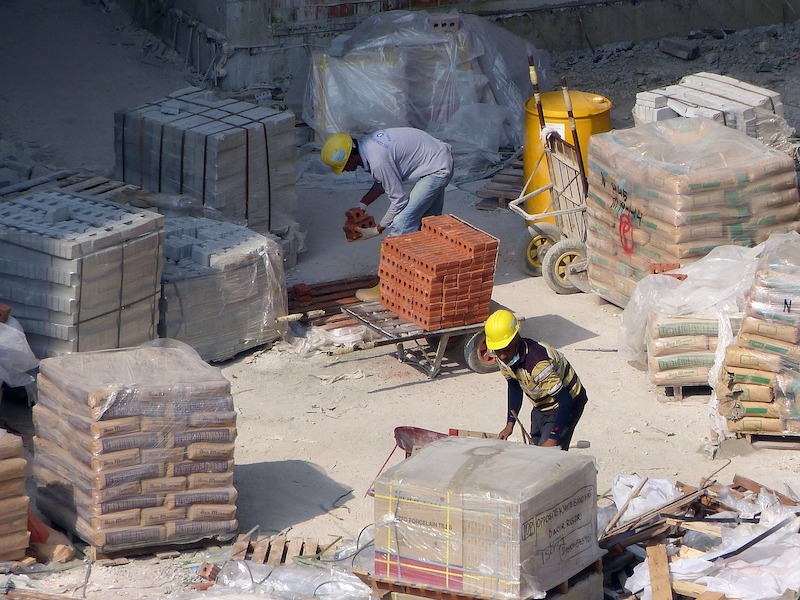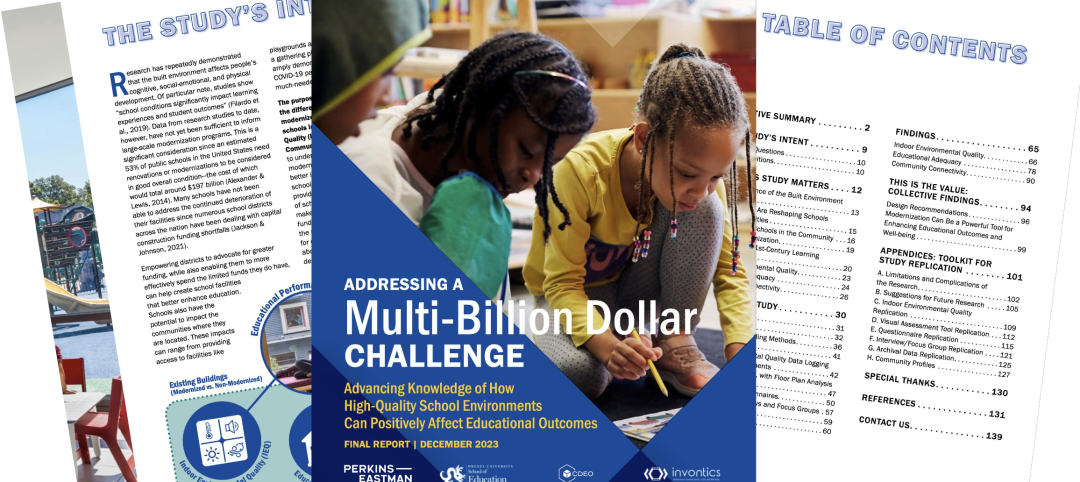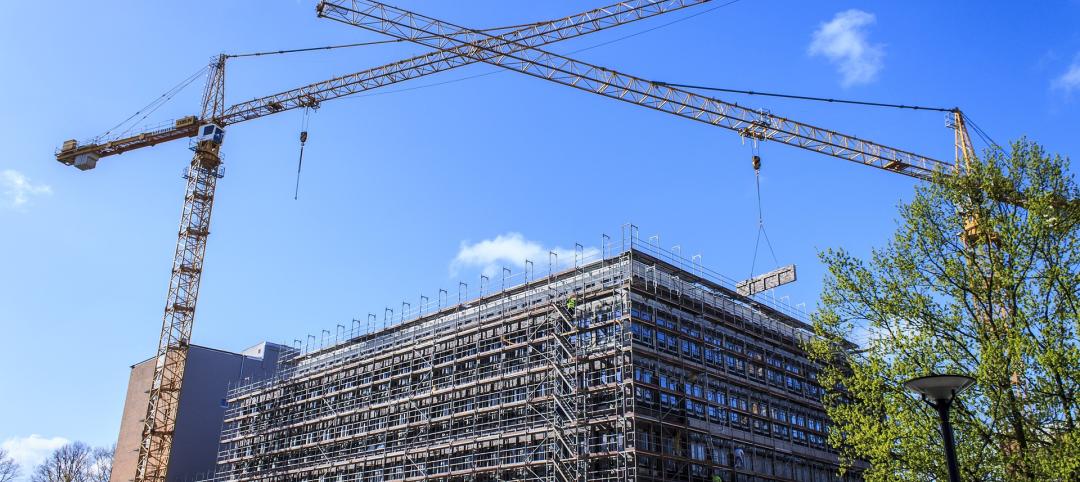Construction employment declined by 975,000 jobs in April as a new survey by the Associated General Contractors of America and data from construction technology firm Procore show deteriorating demand for construction, officials with the association announced today. The new economic data underscores the need for new federal measures to help the construction industry recover, including infrastructure funding, safe harbor provisions and fixes to the Paycheck Protection Program guidance, association officials added.
“Today’s jobs report, our new survey results and Procore’s data make it clear that the construction industry is not immune to the economic damage being inflicted on our country by the pandemic,” said Ken Simonson, the association’s chief economist. “Without new federal help, it is hard to see a scenario where the construction industry will be able to recover any time soon.”
The economist said the loss of 975,000 construction jobs from March to April constituted nearly 13% of the industry’s employment and was, by far, the worst one-month decline ever. He added that unemployment among workers with recent construction experience soared by 1.1 million from a year earlier, to 1,531,000, while the unemployment rate in construction jumped from 4.7% in April 2019 to 16.6%.
Simonson noted that a survey of over 800 construction firms the association released today found that while only 30% of firms report projects have been halted by government order – down from 35% two weeks ago – 37% say their owners have voluntarily halted work out of fears of the pandemic. Thirty-one percent report that owners have canceled projects because of a predicted reduction in demand. And 21% report having projects canceled as a result of a loss of private funding.
All told, 67% of firms report having a project canceled or delayed since the start of the outbreak in early March. These cancellations have forced some firms to cut staff. Twenty-three percent, for example, report cutting staff in March and 22% cut staff in April. Yet the economist said the job losses would likely have been worse if not for the federal government’s Paycheck Protection Program loans, noting that 80% of respondents report having applied for the loans and most having been approved.
The association economist cautioned, however, that recent revisions by the Treasury Department to its guidance for the loans have prompted quite a few firms to consider returning the funds. Eighteen percent of firms report they are considering returning the funds because of the vague guidance, and most of these will be forced to cut staff as a result. Simonson added that is one reason why 12% of firms report they plan to make additional layoffs within the next four weeks.
“Unfortunately, our survey indicates that layoffs are continuing to occur throughout the nation,” Simonson added. “Between March 1 and May 1, 39% of responding firms reduced their headcount. Reductions were particularly severe in the Northeast, where 53% of firms terminated or furloughed employees. The South had the fewest firms reporting staff reductions—29%, while 38% of firms in the Midwest and 45% in the West reduced headcount.”
In addition to the new survey results, the association also shared new data released by construction technology firm Procore. The data is based on the transactions logged via the company’s software by tens of thousands of construction firms across the country. That data is available here and shows how demand and hours-worked have declined in most states since the start of the pandemic. Procore also released a new blog post about the data that can be found here.
“We realized that the construction industry primarily gathers data through surveys, which can take a long time, and it’s pretty tough to get a quick visualization or snapshot of what’s going on with construction at a national and state level. So we decided to do something about it,” said Kristopher Lengieza, Senior Director of Business Development at Procore. “These insights are helping industry organizations and economists analyze trends, debate potential courses of action, and decide on the best path forward, in an effort to support the construction industry through the current pandemic.”
Simonson noted that the construction association was calling on federal officials to take additional steps to prevent additional industry layoffs. Among those steps are clarifying the guidance regarding the paycheck protection program. He also noted that 61% of survey respondents say Congress should enact a “safe harbor” set of protocols to provide firms that are following safe practices with protection from tort or employment liability for failing to prevent a Covid-19 infection.
In addition, 43% of survey respondents hope for a larger federal investment in infrastructure, which will be especially vital as budget constraints force many state and local officials to curtail capital expenditures. And 32% of firms report they would like Washington to enact a Covid-19 business and employee continuity and recovery fund. And an equal percent wants Congress to fill state highway transportation departments’ immediate, $50 billion funding gap.
“Federal officials can, and should, take additional steps to help avoid more layoffs and economic hardship,” Simonson added. “The construction industry’s job losses have little to do with temporary work-stoppages, but a lot to do with longer-term economic problems that will not end with the stay-at-home orders.”
Click here for the association’s survey results and here for a video summary of the survey responses. Click here for Procore’s new construction data.
Related Stories
Retail Centers | Apr 4, 2024
Retail design trends: Consumers are looking for wellness in where they shop
Consumers are making lifestyle choices with wellness in mind, which ignites in them a feeling of purpose and a sense of motivation. That’s the conclusion that the architecture and design firm MG2 draws from a survey of 1,182 U.S. adult consumers the firm conducted last December about retail design and what consumers want in healthier shopping experiences.
Market Data | Apr 1, 2024
Nonresidential construction spending dips 1.0% in February, reaches $1.179 trillion
National nonresidential construction spending declined 1.0% in February, according to an Associated Builders and Contractors analysis of data published today by the U.S. Census Bureau. On a seasonally adjusted annualized basis, nonresidential spending totaled $1.179 trillion.
Market Data | Mar 26, 2024
Architecture firm billings see modest easing in February
Architecture firm billings continued to decline in February, with an AIA/Deltek Architecture Billings Index (ABI) score of 49.5 for the month. However, February’s score marks the most modest easing in billings since July 2023 and suggests that the recent slowdown may be receding.
K-12 Schools | Mar 18, 2024
New study shows connections between K-12 school modernizations, improved test scores, graduation rates
Conducted by Drexel University in conjunction with Perkins Eastman, the research study reveals K-12 school modernizations significantly impact key educational indicators, including test scores, graduation rates, and enrollment over time.
MFPRO+ News | Mar 16, 2024
Multifamily rents stable heading into spring 2024
National asking multifamily rents posted their first increase in over seven months in February. The average U.S. asking rent rose $1 to $1,713 in February 2024, up 0.6% year-over-year.
Market Data | Mar 14, 2024
Download BD+C's March 2024 Market Intelligence Report
U.S. construction spending on buildings-related work rose 1.4% in January, but project teams continue to face headwinds related to inflation, interest rates, and supply chain issues, according to Building Design+Construction's March 2024 Market Intelligence Report (free PDF download).
Contractors | Mar 12, 2024
The average U.S. contractor has 8.1 months worth of construction work in the pipeline, as of February 2024
Associated Builders and Contractors reported that its Construction Backlog Indicator declined to 8.1 months in February, according to an ABC member survey conducted Feb. 20 to March 5. The reading is down 1.1 months from February 2023.
Market Data | Mar 6, 2024
Nonresidential construction spending slips 0.4% in January
National nonresidential construction spending decreased 0.4% in January, according to an Associated Builders and Contractors analysis of data published today by the U.S. Census Bureau. On a seasonally adjusted annualized basis, nonresidential spending totaled $1.190 trillion.
Multifamily Housing | Mar 4, 2024
Single-family rentals continue to grow in BTR communities
Single-family rentals are continuing to grow in built-to-rent communities. Both rent and occupancy growth have been strong in recent months while remaining a financially viable option for renters.
MFPRO+ News | Mar 2, 2024
Job gains boost Yardi Matrix National Rent Forecast for 2024
Multifamily asking rents broke the five-month streak of sequential average declines in January, rising 0.07 percent, shows a new special report from Yardi Matrix.

















